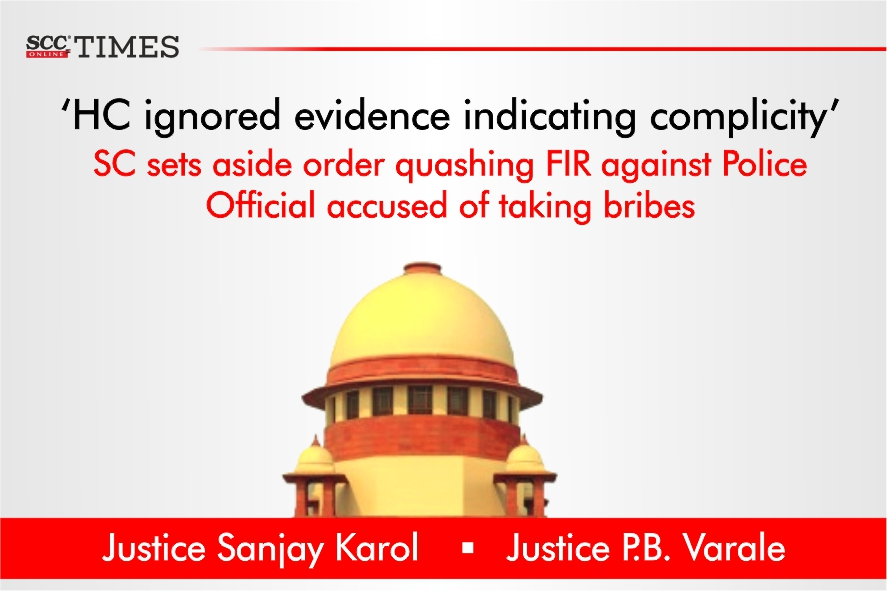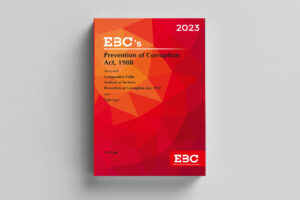Supreme Court: In a criminal appeal against Karnataka High Court’s decision, whereby under Section 482 Criminal Procedure Code, 1973, the High Court quashed the First Information Report for the offence under Section 7(a) of the Prevention of Corruption Act, 1988, pending before the Additional City Civil and Sessions Judge, Bengaluru, the Division Bench comprising of Sanjay Karol and Prasanna Bhalachandra Varale, JJ. allowed the appeal and set aside the impugned decision, quashing the FIR.
The complainant’s wife had filed a complaint against sexual harassment of minor child while visiting the child in the school, resulting into the registration of FIR under the different provisions of the Protection of Children from Sexual Offences Act, 2012 and the Penal Code, 1860. It was alleged that ASI (Accused 2) had received money and the Police Inspector (Accused 1) had assured that they would provide chargesheet in lieu of Rs.80,000/- and that the complainant would also have to pay Rs.500 per week when he visits the police station, as a condition of bail. Based on the preliminary inquiry of the Karnataka Human Rights Commission, Bangalore, the FIR was registered with the Anti-Corruption Branch under the provisions of Prevention of Corruption Act, 1988. The High Court held that there was no direct evidence that the respondent demanded any bribe from the complainant. The Accused 1 had preferred the present appeal.
The Court viewed that the Court’s approach in quashing the FIR was legally unsustainable, as it ventured into an inquiry, unwarranted at this stage, holding that there was no direct evidence that the present Accused 1 had demanded any money and that there was no material to proceed against him, completely forgetting the material which had surfaced during the course of investigation, indicating his complicity in the crime.
Therefore, the Court allowed the appeal. The Court also noted that the High Court did not consider that the Lokayukta had pleaded that the continuance of the trial was not on the very same evidence as what weighed with the authorities in exonerating the employee in the departmental proceedings. Therefore, the Court set aside the impugned judgment and restored the FIR to be taken to its logical end, in accordance with law. The Court also clarified that all the questions of fact and law, as also other pleas raised, are left open for the parties to be agitated, before the appropriate forum at the appropriate stage.
CASE DETAILS
|
Citation: Appellants : Respondents : |
Advocates who appeared in this case For the Petitioner: For the Respondent: |
CORAM :












